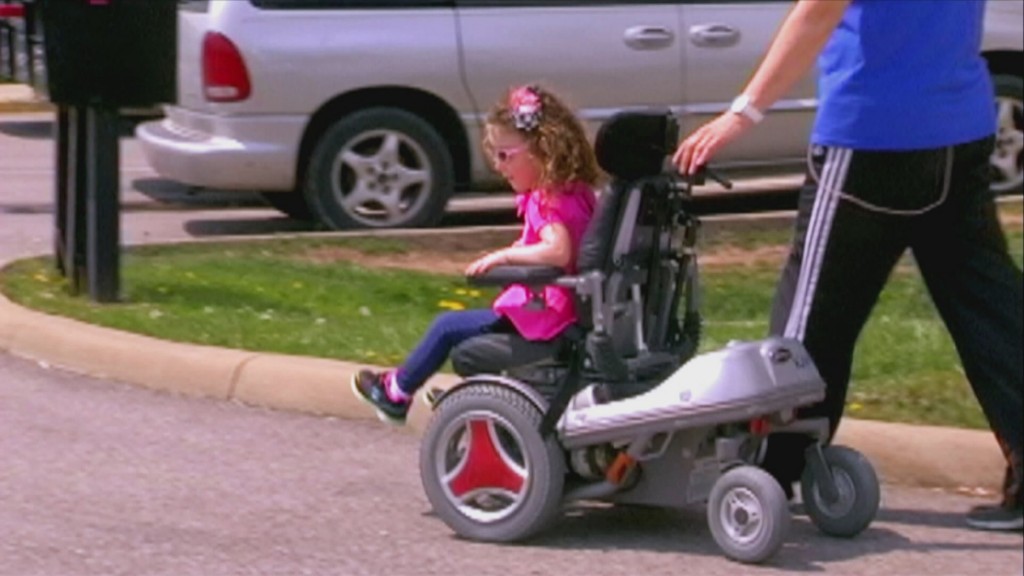A lot of people would argue that television these days, especially programming targeted towards young people, lacks educational value. MTV undoubtedly is the target of the majority of the criticism because of its history of airing such gems like the Jersey Shore. However, recently, to my chagrin, I have found myself intrigued with one of MTV’s popular shows…Teen Mom 2. In case you’ve never heard of it, its a reality show that follows four mothers who have had children in their teens and their lives. I have heard mostly negative reviews on the entire concept of this show but did not get a chance to form my own opinion, however, until this summer when I actually found myself actively engaged in it. And, soon I was hooked…I had to binge watch it. I seriously could not help myself. What I didn’t know or expect before was that this show was teaching young people all over the country about the severity of muscular dystrophy.
I know what you’re thinking, that television show promotes teen pregnancy and lifestyles that are not quote-on-quote, “practical.” However, I think the show is more of an advocate for youth taking birth control precautions by showcasing the day to day issues that occur to these women facing young motherhood. One of the mothers on the show in particular struggles with circumstances that arguably are the most difficult out of the bunch. Although she is only 22 years old, Leah Messer-Calvert, she has 3 daughters already and has been married twice. Her first birth occurred when she was only 16 years old when she had twins , Aliannah and Aleeah .However, life would prove to be even more of a roller-coaster after she realized not all of her children were functioning normally.
Even before Teen Mom, the pregnancy and birth of the twins was televised on a related show, 16 and Pregnant. Early on, the young parents noticed that the developments of their twin daughters were not happening at the same pace. For several years, the young mother struggled with countless doctor’s visits and tests to determine why she was not performing the way her sister was. It caused severe anxiety for years. It wasn’t until her daughter was 4 years old that she learned the terrible news, Ali was the only child in the world to be diagnosed with a particular case of muscular dystrophy. Although the young parents were relieved to finally have some answers, it would only be the beginning in their life of worries for their child. Because the disease is a progressive disorder; its only going to get worse.
In case you aren’t familiar with the disease:
Mayo Clinc says, “Muscular dystrophy is a group of genetic diseases in which muscle fibers are unusually susceptible to damage. These damaged muscles become progressively weaker. Most people who have muscular dystrophy will eventually need to use a wheelchair.
There are many different kinds of muscular dystrophy. Symptoms of the most common variety begin in childhood, primarily in boys. Other types of muscular dystrophy don’t surface until adulthood.
People who have muscular dystrophy may have trouble breathing or swallowing. Their limbs may also draw inward and become fixed in that position — a problem called contracture. Some varieties of the disease can also affect the heart and other organs.
While there is no cure for muscular dystrophy, medications and therapy can slow the course of the disease.”
Ali had begun having issues with walking as soon as she was on two feet. After short distances she was getting tired. The doctor had a recommendation; get Ali a wheelchair or her walking will only get worse. The only problem was that the wheelchair she needed cost $20,000 and because her disease is the only case in the world, she could not immediately get insurance approval to pay it. Leah teamed with doctors and physical therapists to train the young child on a loaner motorized chair. The insurance company tried to use the excuse of Ali being too young to be able to use the wheelchair, but after working with physical therapists, the professionals were able to record the use of the chair and send it to prove she definitely was capable of using it.
Raising a child that will battle a crippling rare disorder will require a lifetime of physical therapy, doctors visits and medications. However, the young mother stays optimistic. Off-screen, she has high hopes for her daughter’s future. Leah says, “We’re moving to a farm and getting Ali horses for therapy. The house is handicap-accessible – toilets, doorways, sinks, showers, everything.” She also says, “The struggles with Ali will always be there. I’m expecting ups and downs and things I don’t want to hear. But I know in my heart I’m going to handle everything the best way I possibly can. I’m in a great, great place.”

